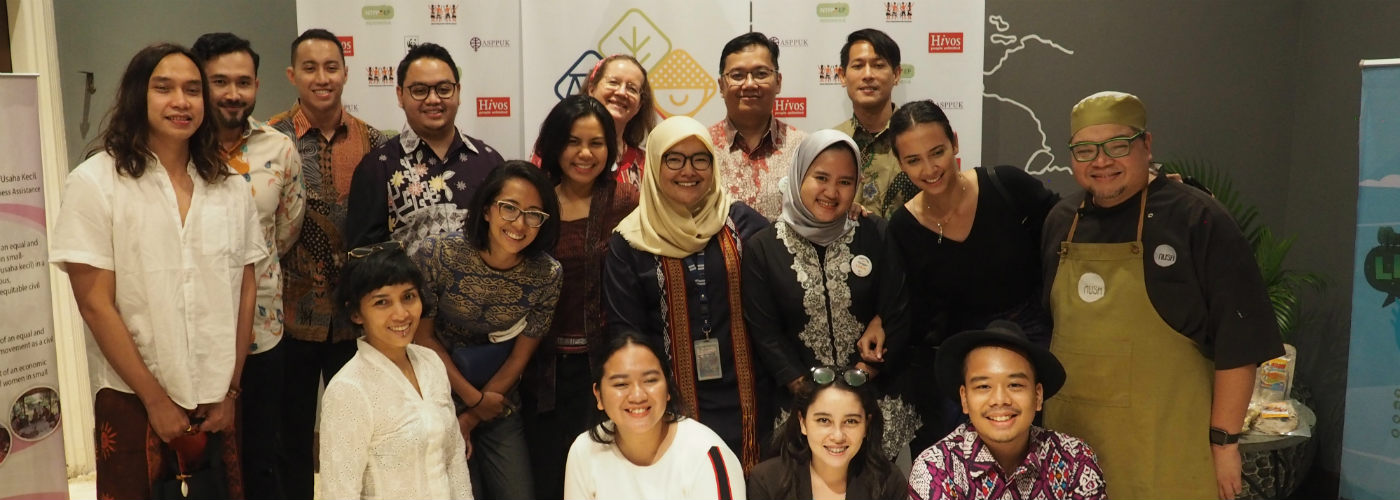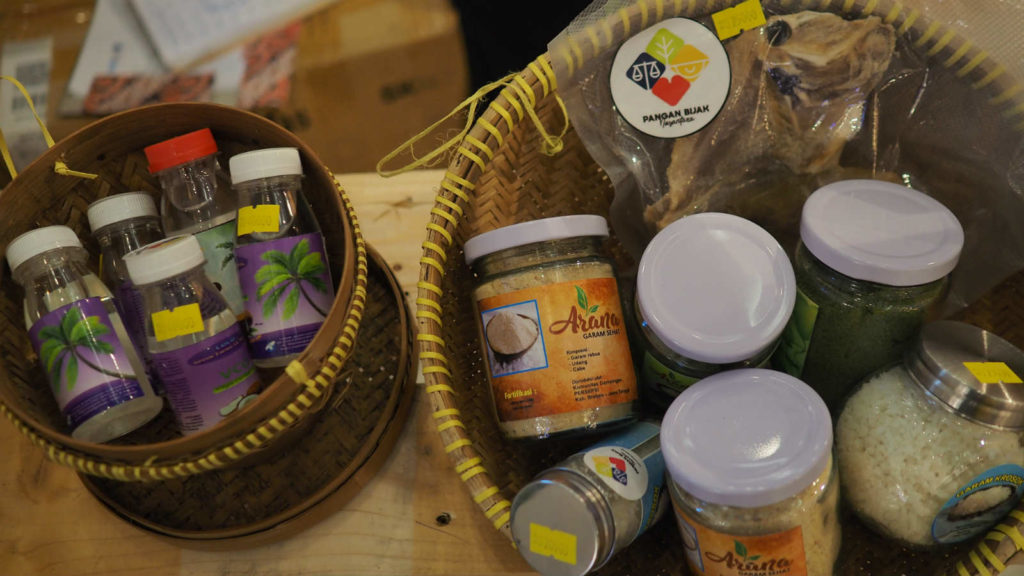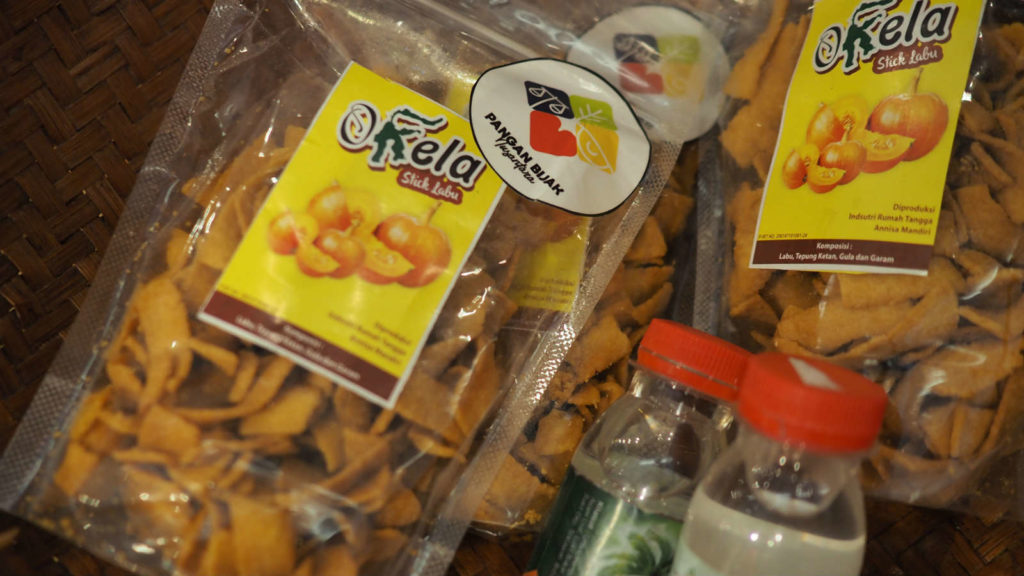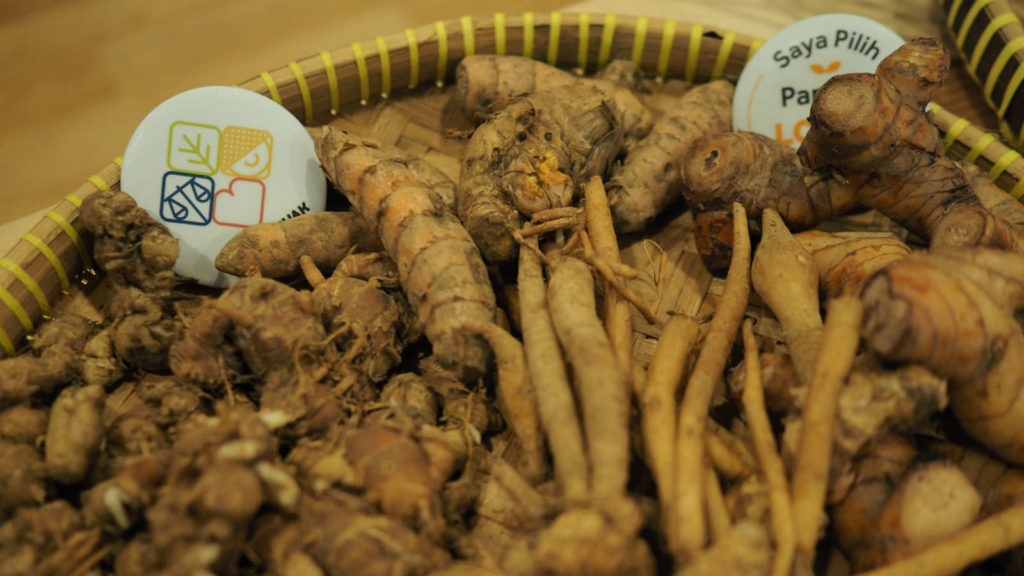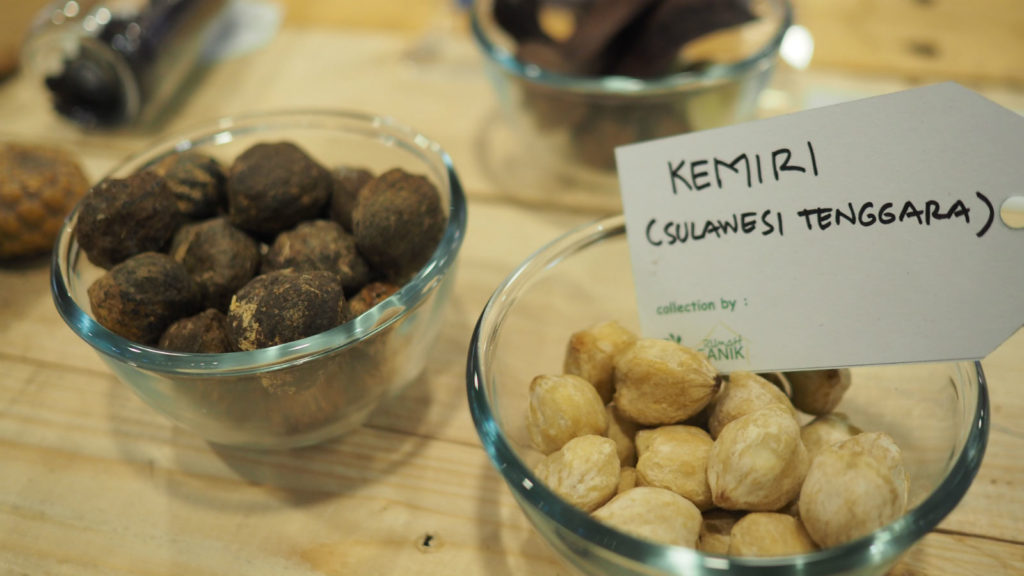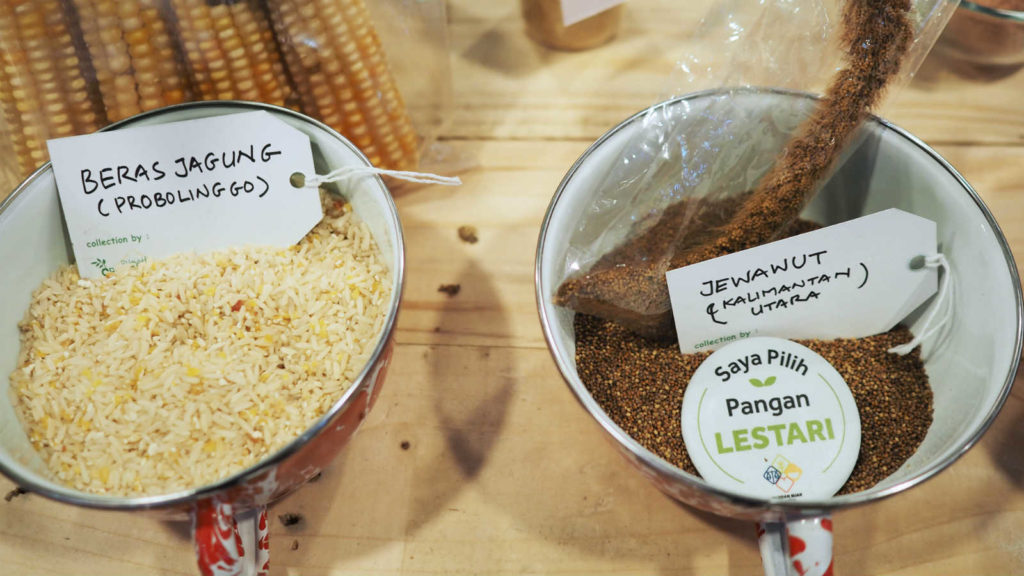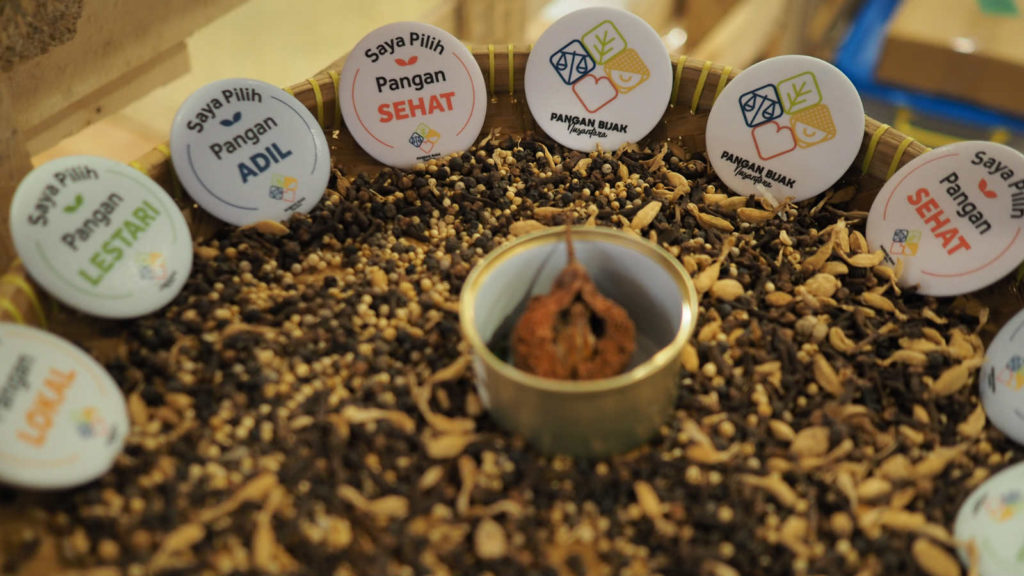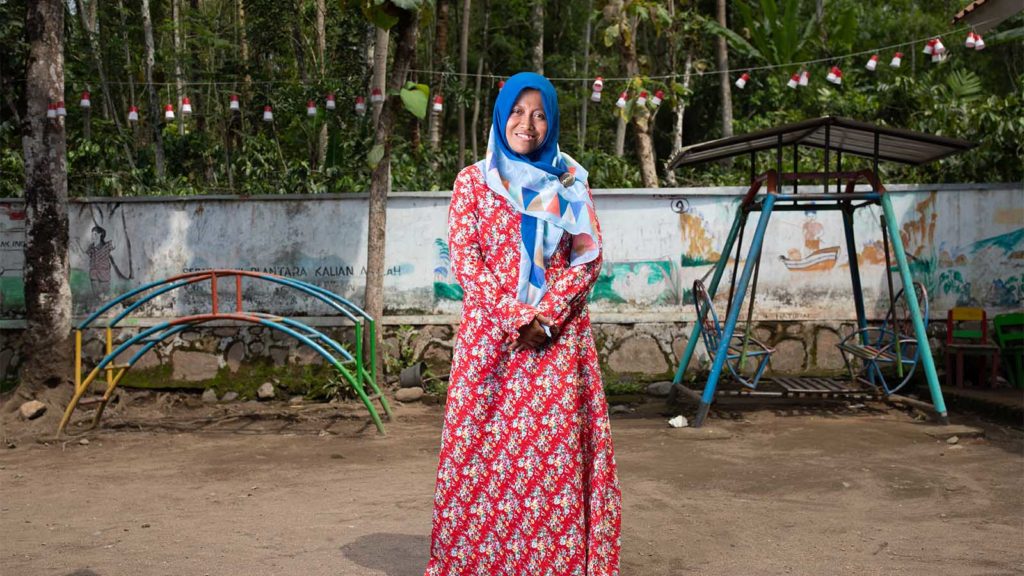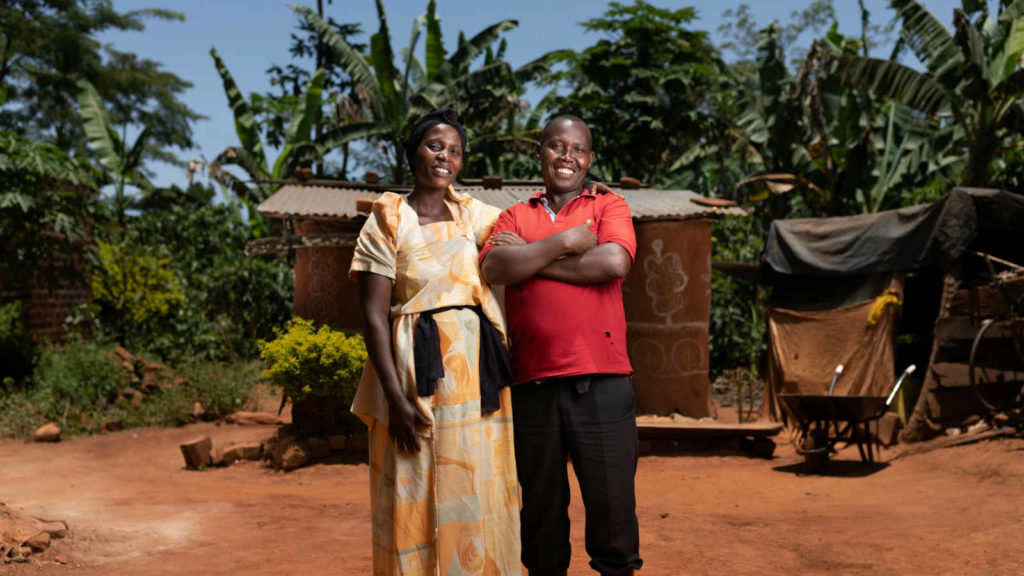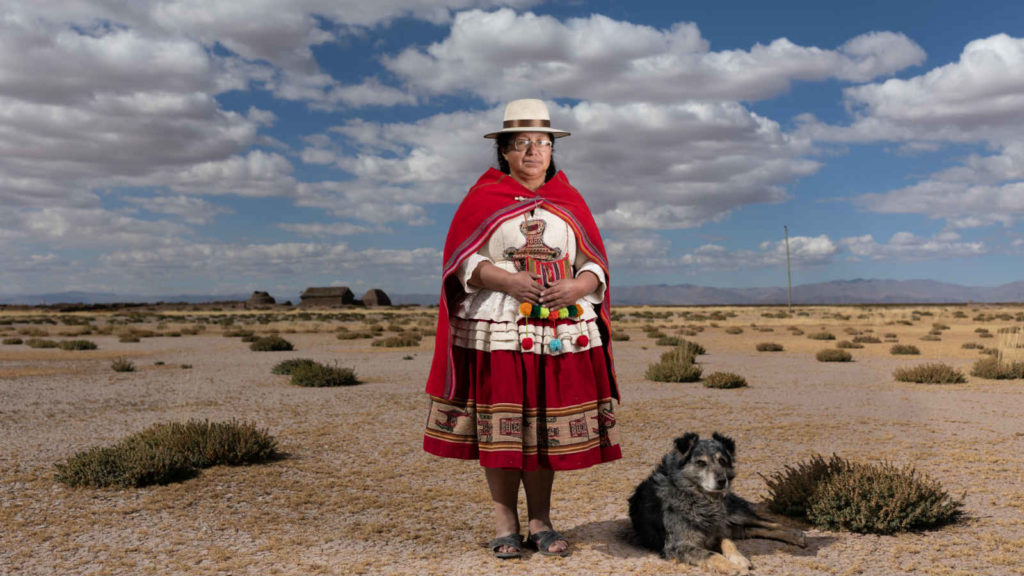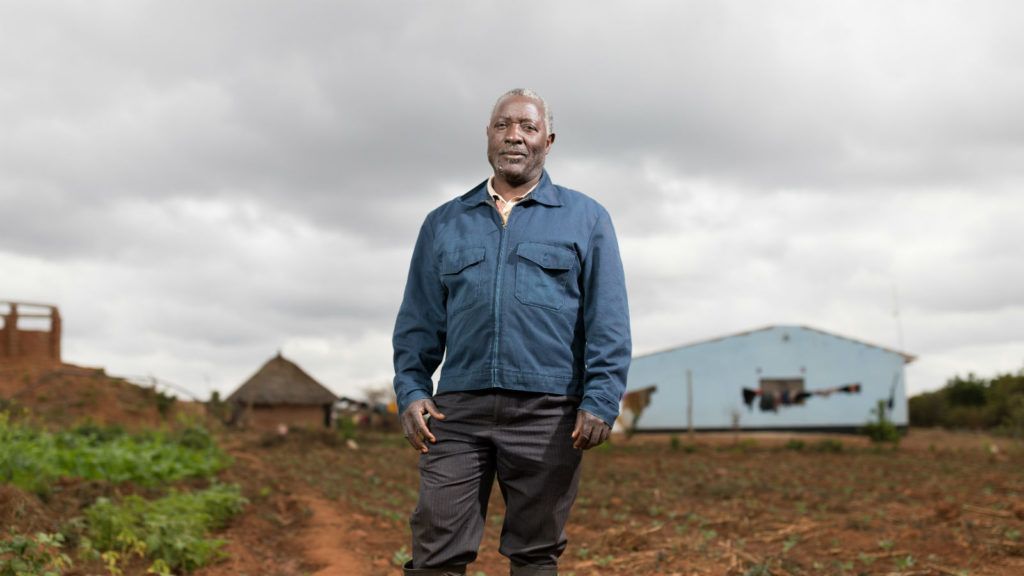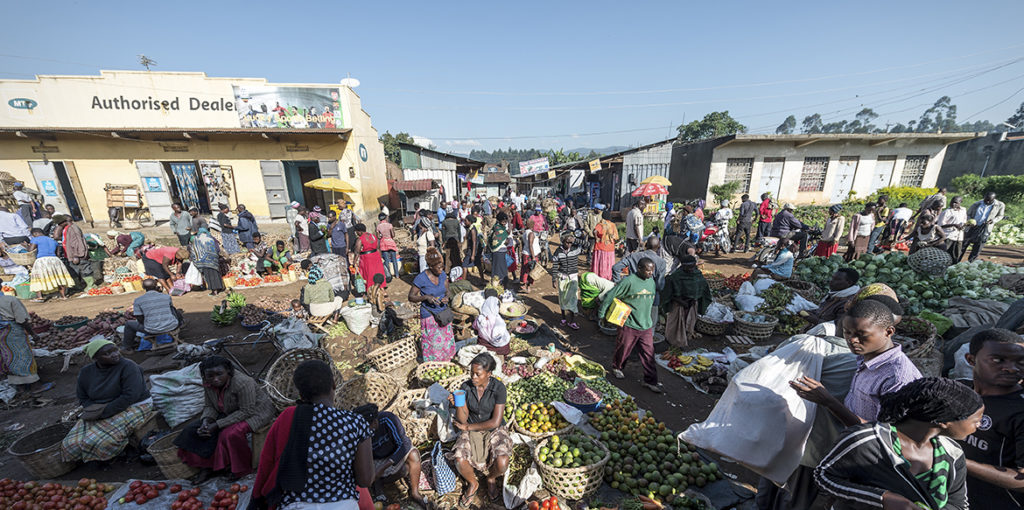Local, fair, healthy, and sustainable: these are the main principles of the Wise Foodways campaign. A four-year public campaign to propel local, healthy, sustainable and equitable food systems for producers and consumers in Indonesia.
There are ways to reduce the pressure of food production and consumption on the environment.
Hivos is part of the Local Harvest project consortium leading the campaign. Other partners include: WWF Indonesia, Association for Women in Small Business Assistance (ASPPUK), Non Timber Forest Product-Exchange Program (NTFP-EP) Indonesia and Indigenous People’s Alliance of the Archipelago (AMAN). Supported by the European Union under the SWITCH Asia project, the consortium is using seven key food products from many rural areas in Indonesia to exemplify “wise food” products. It launched “Pangan Bijak Nusantara” (“wise foodways”) in Jakarta in May 2019 to support SDG12 (sustainable production and consumption), to encourage healthy, traditional food systems, and to preserve the environment while meeting the increase in food needs.
We asked Aditya Bayunanda, director of policy at WWF Indonesia, to explain the link between the food system and conserving the environment. “The increasing need for food makes the agricultural sector a significant cause of environmental degradation and biodiversity loss globally, including in Indonesia. However, there are ways to reduce the pressure of food production and consumption on the environment, and mitigate water, soil and air pollution by maintaining and strengthening the conservation practices of traditional food systems and promoting healthier and more sustainable consumption,” he said.
The main principles of the campaign are deeply rooted in these issues:
- local (clear origin, low carbon footprint in food production and consumption)
- fair (prices are fair for producers and consumers)
- healthy (nutritious, natural)
- sustainable (protecting the environment, preserving agrobiodiversity of food plants)
The consortium collaboration
Since the project began in 2018, Hivos, as the organization leading the consortium, has been closely collaborating with WWF Indonesia, the organization coordinating the campaign. We work with three participating member organizations, AMAN, ASPPUK and NTFP-EP Indonesia. Utilizing each organization’s local and national network, the consortium targets diverse groups: food producers and consumers, media, small and medium enterprises, food industry activists, influencers and bloggers, and local governments, amongst others.
Throughout 2019, we conducted a variety of online and offline campaign activities to increase consumers’ and producers’ knowledge and awareness of the benefits of ethical, sustainable food choices, as well as the environmental and social impact of their practices and food choices.
One of these campaign activities was the 2019 PARARA Food Festival in Jakarta that called for consumers to return to local traditions and to nurture the earth by becoming wiser in their food choices. Various small-scale producers from all over Indonesia participated in the event and interacted with consumers.
Seven key food products
The key food products used in the project to represent “wise food” choices are Adan Krayan rice, sea salt from Rembang, pure coconut oil from Nias, palm sugar from Kolaka, forest honey from Kalimantan and Southeast Sulawesi, Toraja coffee, and sago from the Tohor River. These are only some examples that represent local, sustainable, fair and healthy food products in the traditional food production systems. They are produced in traditional ways by groups of women and men in indigenous and local communities spread across eight provinces in the Indonesian archipelago.
The project helps producers apply sound agricultural and handling practices through training, standard development and technical assistance in order to produce better quality local food products. In the process, the consortium also focuses on consumption.
Accomplishing goals for 2020
At the beginning of 2020, Hivos, WWF Indonesia, and the other consortium members evaluated results, revisited the project’s planned activities and shared lessons learned. We also identified strategies to improve the campaign in 2020. Especially regarding business platforms for retail SMEs, micro-finance opportunities for producers, market linkages for the industry retailers and buyers, and strategies for online and offline events.
To make that happen, we aim to strengthen our collaborations with all relevant stakeholders and synergize our efforts. Ultimately, we want to see people – especially in urbanized consumer centers – become more aware of the benefits of sustainable food, and buy and consume more of it. This will also improve the livelihoods of small-scale farmers and producers.
The shift towards local, fair, healthy and sustainable consumption and production habits will take a long time to achieve. But all it needs is to start are simple steps in everyday life. As Miranda, the Local Harvest project manager says, “We need to start consuming local, ‘sustainable’ food, find information about who, where, how your food is produced, and become a role model to encourage other people to consume local and sustainable food.”

